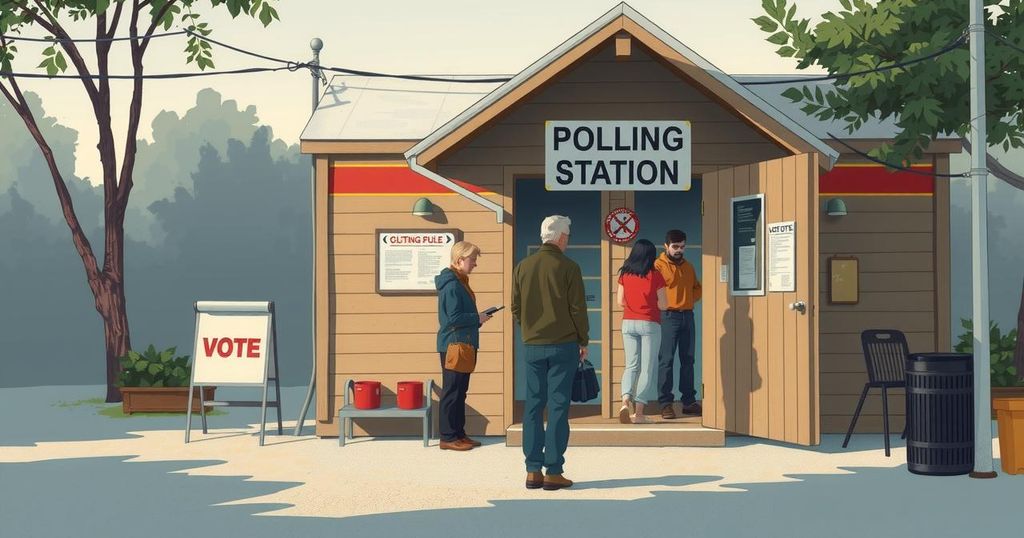Venezuelan Elections Hampered by Low Voter Turnout Amid Opposition Boycott

Venezuelan elections saw low voter turnout as the main opposition party boycotted the vote. The elections were for 285 National Assembly members and 24 governors, including the disputed Essequibo region. Critics worry about the legitimacy of the process, following President Maduro’s controversial reelection last summer.
On Sunday, Venezuelans faced a significantly low voter turnout as they headed to the polls for legislative and gubernatorial elections. The main opposition party, having decided to boycott the vote, expressed frustration over the disputed reelection of President Nicolas Maduro last summer. This political stance contributed to the sparse crowds observed in polling stations across the country.
Approximately 21 million individuals were eligible to participate in choosing 285 members of the National Assembly along with 24 state governors. Remarkably, this election included the oil-rich region of Essequibo, which has been a contentious area along the border with Guyana. This region’s involvement marked a notable shift in the electoral landscape amid ongoing political turmoil.
Overall, the boycott and prevailing discontent among the electorate clearly indicated a lack of faith in the electoral process orchestrated by the Maduro government. Critics argue that the absence of the opposition only heightened concerns surrounding the legitimacy of the elections and further jeopardized democracy in Venezuela. This situation poses questions about the future of political engagement and representation in the country.
In summary, the Venezuelan elections were characterized by low turnout largely influenced by the opposition’s boycott in protest of President Maduro’s previous reelection. With over 21 million eligible voters for key legislative and gubernatorial positions, the lack of participation raises alarm about the electoral process’s credibility. The situation remains precarious, leaving Venezuelans to grapple with concerns surrounding democracy and governance.
Original Source: www.mydailyrecord.com







